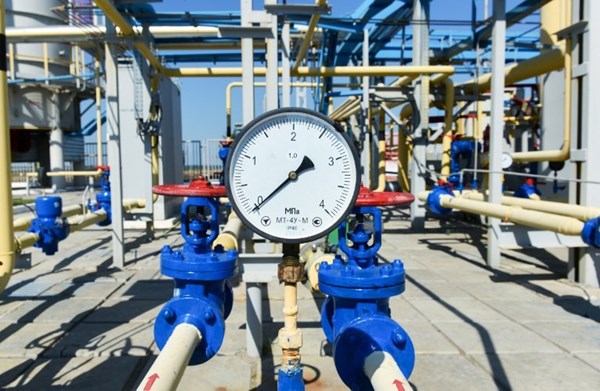Kyiv: Ukraine is preparing to stop gas transit from Russia
Ukraine is preparing to stop gas transit from Russia and the program of optimization of the country's gas transportation system is part of this strategy, stated the head of the Ukrainian national company "Operator of the Gas Transport System of Ukraine" Serhiy Makogon in an interview with the Liga.net news outlet.
According to Makogon, Kyiv will continue to oppose the construction of the Nord Stream-2 gas pipeline and counts on assistance from the U.S. and EU countries, as the project "carries risks not only for Ukraine, but for all Europe." At the same time, he believes, "it is already obvious" that Gazprom will not be able to complete the construction by 2021.
According to Makogon, the alternative for the Ukrainian gas transportation system will be transit between European countries. Makogon said that Ukraine is also considering the possibility of supplying American liquefied natural gas through Poland and further to Eastern Europe.
At the end of December 2019, Gazprom signed a five-year package of agreements with Naftogaz that regulates the transit of Russian gas through Ukraine. According to the agreement, Gazprom will pump 65 billion cubic meters of gas in the first year and 40 billion cubic meters in the next four. According to the draft agreement between the companies, gas transit has risen by 2% since January 1 compared to the previous year, which could cost Gazprom more than $7 billion in five years.
In January 2020, the transit of Russian gas through Ukraine amounted to 2.65 billion cubic meters and 3.926 billion cubic meters in February, which is 76% of the booked capacity.
Andriy Kobolyev, chairman of the board of Naftogaz, who has repeatedly opposed Nord Stream 2, believes that the pipeline would deprive Ukraine of a significant part of Russian gas transit to Europe. This year Russia will not be able to decrease gas transit through Ukraine, but the need for transit capacity may begin to decrease as the Nord Stream-2 and Turkish Stream gas pipelines become fully operational.
